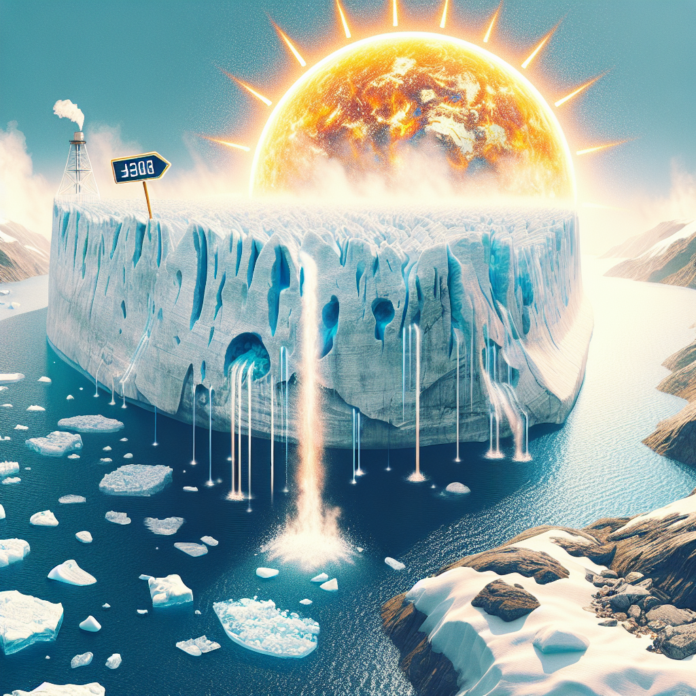Climate Change Accelerates Glacier Melting
Climate Change Melting Glaciers Faster Than Ever
Recent studies indicate that climate change is accelerating the melting of glaciers at an unprecedented rate. As global temperatures rise due to greenhouse gas emissions, the impact on polar and mountainous regions is becoming increasingly severe. Glaciers, which act as vital freshwater reserves for millions of people, are retreating and thinning, leading to significant consequences for ecosystems and human communities alike.
The Current State of Glacier Melt
According to the latest research, glaciers worldwide are losing ice mass faster than in previous decades. Data from satellite observations and ground measurements reveal that glaciers in regions such as the Himalayas, the Andes, and Greenland are shrinking at alarming rates. For instance, the Greenland ice sheet is losing approximately 280 billion tons of ice per year, contributing to rising sea levels and threatening coastal communities.
Consequences for Ecosystems and Human Populations
The rapid melting of glaciers poses serious risks to biodiversity and natural habitats. As glaciers retreat, they disrupt the delicate balance of ecosystems that rely on glacial meltwater for sustenance. Species that depend on cold water, such as certain fish and amphibians, may face extinction if temperatures continue to rise.
Furthermore, many communities around the world depend on glaciers for their freshwater supply. As glaciers melt, there may be an initial increase in water flow, but this will eventually lead to water shortages as the glaciers continue to recede. This situation poses a direct threat to agriculture, drinking water availability, and hydroelectric power generation.
Global Responses and Solutions
In response to the alarming rate of glacier melt, governments and organizations worldwide are taking action to mitigate climate change. Agreements such as the Paris Accord aim to limit global warming to well below 2 degrees Celsius above pre-industrial levels. Additionally, efforts are being made to invest in renewable energy sources, enhance energy efficiency, and promote sustainable land use practices.
Furthermore, researchers are advocating for increased funding for climate change research and the development of innovative technologies to capture and store carbon emissions. Public awareness campaigns are also essential to educate individuals about the impact of their carbon footprint and encourage more sustainable lifestyle choices.
The Role of Individuals
While large-scale changes are crucial, individual actions can also play a significant role in combating climate change. Simple lifestyle changes, such as reducing energy consumption, using public transportation, and supporting local and sustainable products, can collectively make a substantial impact.
The Path Forward
As glaciers continue to melt at an alarming rate, it is imperative that we act swiftly to address the underlying causes of climate change. By taking a multifaceted approach that includes policy changes, technological advancements, and individual responsibility, we can work towards a more sustainable future that protects both our planet and the communities that depend on its natural resources.


